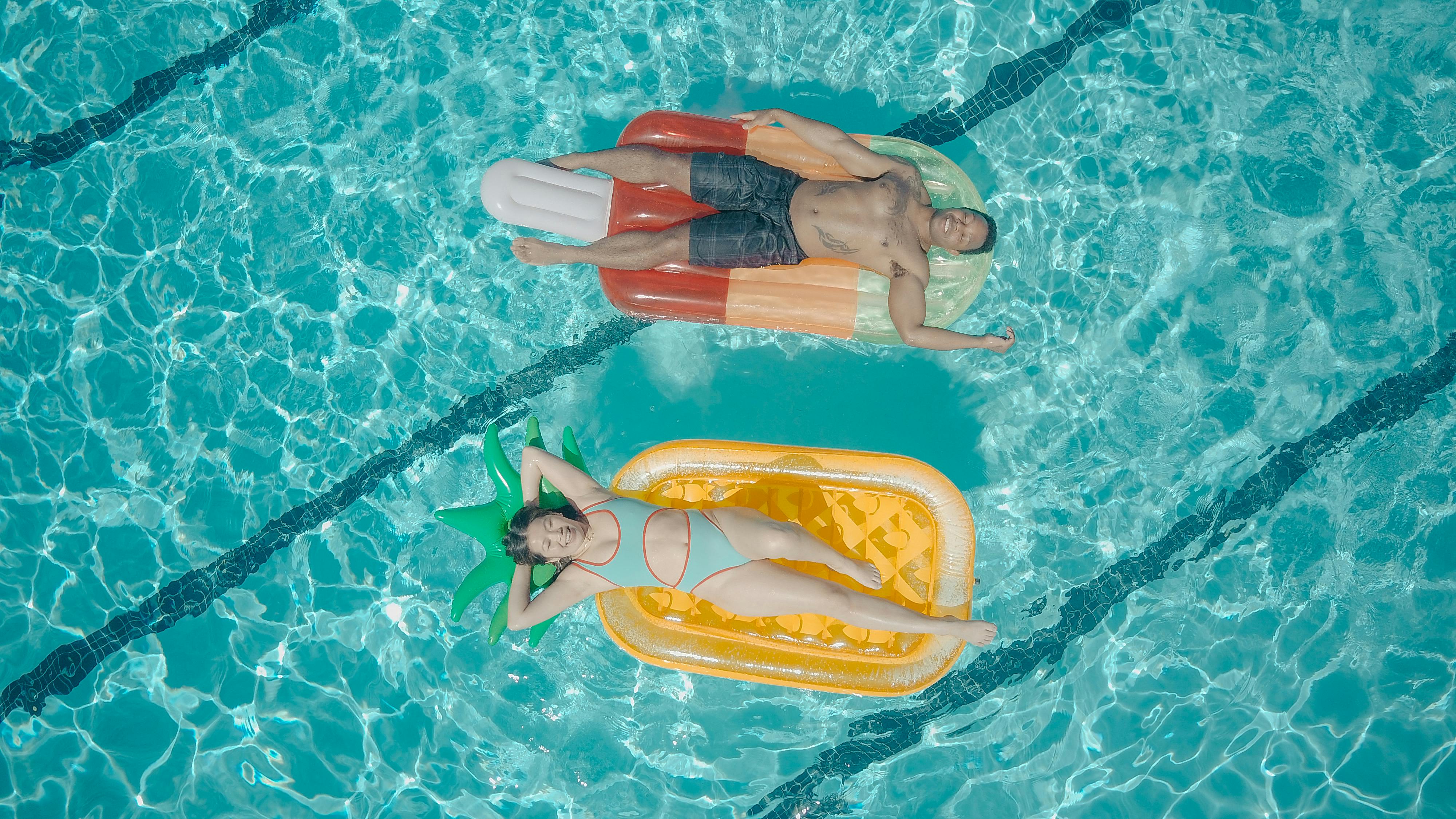Distilled water is a type of purified water that has been processed to remove impurities, including minerals and chemicals like fluoride and chlorine. It is often used for medical and scientific purposes, as well as for producing bottled drinking water. While distilled water does not contain fluoride or chlorine, it may still contain trace amounts of other contaminants that can be harmful if consumed in large quantities. This article will discuss whether distilled water contains fluoride or chlorine and the potential health risks associated with consuming it.No, distilled water does not contain fluoride. Distillation is a process in which water is boiled, then condensed and collected in a separate container, which leaves impurities behind. Fluoride is an impurity that is not present in distilled water.
Distilled Water vs Tap Water
Distilled water and tap water are two common types of water. Distilled water is created through a process of distillation, which involves boiling the water and then condensing the steam back into a liquid form. Tap water is sourced from natural sources such as rivers, lakes, and reservoirs, and treated with chemicals such as chlorine to make it safe to drink.
The main difference between distilled water and tap water is that distilled water has had all impurities removed while tap water still contains minerals and other substances that are found naturally in the environment. Distilled water has a very low mineral content and is considered “pure” since it lacks any added chemicals or contaminants. Tap water, on the other hand, typically contains trace amounts of minerals such as calcium, magnesium, iron and sodium.
Another difference between these two types of waters is their taste. Distilled water has a very neutral taste due to its lack of minerals, while tap water may have a slight metallic or chlorine taste from the treatment process. The taste can vary depending on where the tap water comes from as different areas have
Does Distilled Water Contain Chlorine?
Distilled water is a type of purified water that has been processed to remove impurities, such as minerals, bacteria, and other contaminants. The process of distilling involves boiling or evaporating the water and then condensing the vapor back into a liquid form. This method of purification removes chlorine and other dissolved solids from the water. As a result, distilled water does not contain chlorine.
However, some distilled waters may contain trace amounts of chlorine due to the presence of small amounts of organic compounds in the atmosphere. For example, when rain falls it can pick up trace amounts of chlorine from industrial sources. This means that even if a bottle of distilled water does not list chlorine on the label, there is still a possibility that it contains tiny amounts.
It is important to note that some bottled waters labeled as “distilled” may not actually be pure distilled water. Instead, they may contain additional minerals or other substances added during processing for flavor or health benefits. To ensure that you are drinking pure distilled water with no added chemicals or contaminants, it is best to buy it from a reputable source and check the label
Are There Any Health Benefits of Drinking Distilled Water?
Yes, there are many potential health benefits associated with drinking distilled water. Distilled water is free from many of the contaminants that can be found in tap and other types of drinking water. This means that it can be a healthier option for those who are looking to improve their overall health. Additionally, distilled water has a lower mineral content than other types of drinking water, which can lead to better hydration and improved digestive health.
Distilled water is also free from many of the chemicals and additives found in tap or bottled waters. This means that it is less likely to contain harmful substances like chlorine, fluoride, or heavy metals such as lead and arsenic. These contaminants can have a negative impact on human health, so avoiding them by drinking distilled water can be beneficial.
Finally, distilled water has a milder taste than other types of drinking water. This makes it easier for some people to drink more each day and stay properly hydrated. Proper hydration is essential for overall health, so being able to drink more by choosing a milder-tasting option such as distilled water can be beneficial. Distilled water has many advantages over other forms of purified water. Distillation is a process that removes impurities from water by boiling it and then condensing the steam back into liquid form. The result is water that is free from most contaminants, such as heavy metals, salts, and other minerals. Furthermore, distillation eliminates bacteria, viruses, and other microorganisms from the water. This makes distilled water ideal for drinking or cooking with. Since distillation removes impurities from the water, it also eliminates any unpleasant taste or odor that may have been present in the original source. This makes it much more pleasant to drink than untreated tap or well water which often has a distinct taste or smell due to minerals and other contaminants. Distilled water is a healthier option than regular tap or well water since it is free of contaminants such as heavy metals and other minerals that can be harmful if consumed in large quantities. It also eliminates bacteria, viruses, and other microorganisms which can cause illness if ingested. Furthermore, Distilling water can be an effective way to purify drinking water, but there are some potential disadvantages to consider. Distillation requires a significant amount of energy, which can make it expensive and not practical for large-scale use. Additionally, the process does not remove all contaminants from the water and may actually concentrate some, such as heavy metals or bacteria. Additionally, distillation removes beneficial minerals from the water that are important for health, so distilled water may not be as beneficial as other forms of purified drinking water. Finally, distillation can take a long time – up to several hours – which can limit its practicality in certain situations. Overall, distillation is an effective way to purify drinking water on a small scale, but it has some drawbacks that should be considered when deciding whether or not it is the best option for your needs. Distilled water is created through a process of distillation, which separates impurities from water by boiling it and then condensing the steam back into liquid form. The process of distillation works by boiling the water and collecting the steam that rises. The steam is then cooled and condensed back into liquid form, leaving behind any impurities that were in the original water. This process can also be done with other liquids such as alcohol and essential oils. The end result is a pure, clean form of H2O free from contaminants and minerals. Distilled water is often used for drinking, as it does not contain any dissolved minerals or ions which can give it a taste or smell. It is also used in medical settings, where sterilized and contaminant-free water is necessary for procedures such as dialysis or kidney dialysis. It can also be used when preparing food or beverages that require purified water, such as baby formula or coffee. Distilled water has many advantages over regular tap water – not only is it much cleaner, but it also doesn’t have any added chemicals or other substances that can be potentially harmful to The short answer is yes, drinking distilled water is safe. Distilled water is essentially purified water that has had all of its impurities removed through a distillation process. This means that any minerals or contaminants that were present in the original source of the water have been taken out. Distilled water is free from bacteria, viruses, and other microorganisms, so it is safe to drink. However, it’s important to note that drinking distilled water on a regular basis may not be ideal for everyone. Some people are used to the taste of tap or mineral water, so they may find distilled water to be overly bland or unappealing. It can also leach minerals from the body, which can lead to deficiencies if it’s consumed in excess. That said, drinking distilled water every once in a while isn’t going to do any harm. In fact, it can be beneficial when used as part of an overall healthy lifestyle. People with certain health conditions may find that drinking distilled water helps reduce their symptoms by removing potential contaminants from their diet. For example, those with kidney diseases or high levels of lead may Distilled water does not contain fluoride or chlorine. It is produced by boiling water and capturing the steam, which removes many of the dissolved minerals in the original water source. Distilled water is not suitable for drinking as it lacks essential minerals, but can be a useful tool for cleaning and other applications. It can also be fortified with minerals to make it a more viable option as a source of drinking water. Overall, distilled water does not have any fluoride or chlorine and is suitable for certain uses such as cleaning, but it should not be used as a primary source of drinking water without mineral fortification.Taste and Odor
Health Benefits

What Are the Disadvantages of Distilling Water?
How Is Distilled Water Made?
Is It Safe to Drink Distilled Water Everyday?

Conclusion

